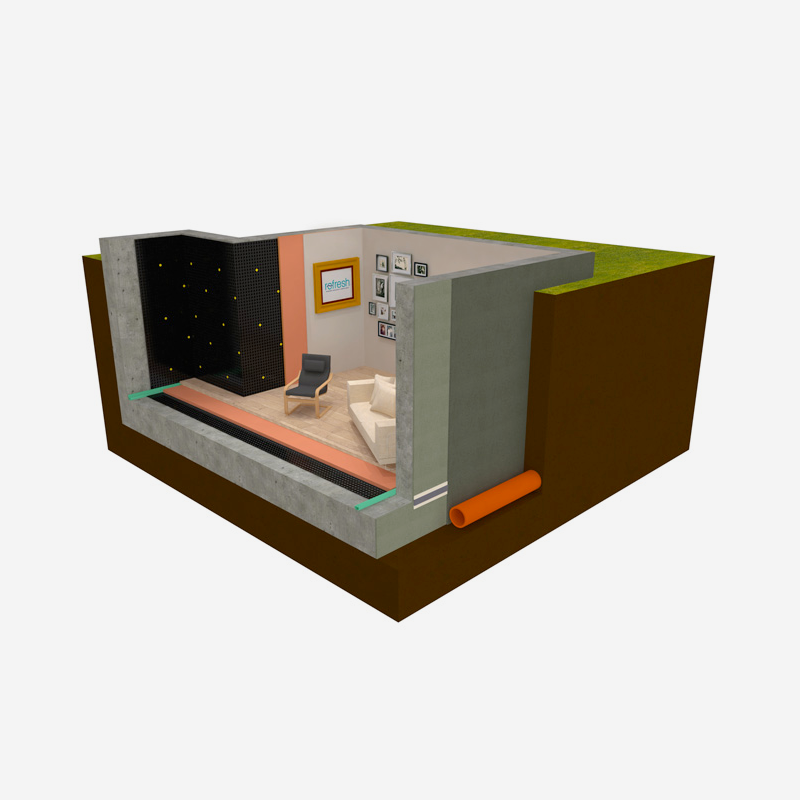At Refresh, we provide expert basement waterproofing in and around London with a focus on long-term results. Speak to our team today for a tailored solution that protects your space, your health, and your investment.
Waterproofing a basement is crucial for protecting your property against water ingress, structural deterioration, and the persistent effects of dampness. Due to their location below ground level, basements are particularly prone to moisture intrusion, as groundwater pressure can force water through walls, floors, and joints.
Without effective protection, this moisture can result in:
- Crumbling foundations
- Warped or rotting timber
- Mould build-up
- Damaged furniture or storage
- A space that becomes unusable, unhealthy, and unsightly
Whether it’s used for storage, a utility area, or a fully functional living space, your basement needs to stay dry to be safe and valuable. Professional waterproofing and tanking not only preserve the condition of your basement but also increase your home’s long-term value.
Beyond property protection, waterproofing also plays a key role in health and safety. Poor ventilation in damp basements can create ideal conditions for mould spores and mildew to grow, which may trigger respiratory issues, allergies, and other health concerns.




